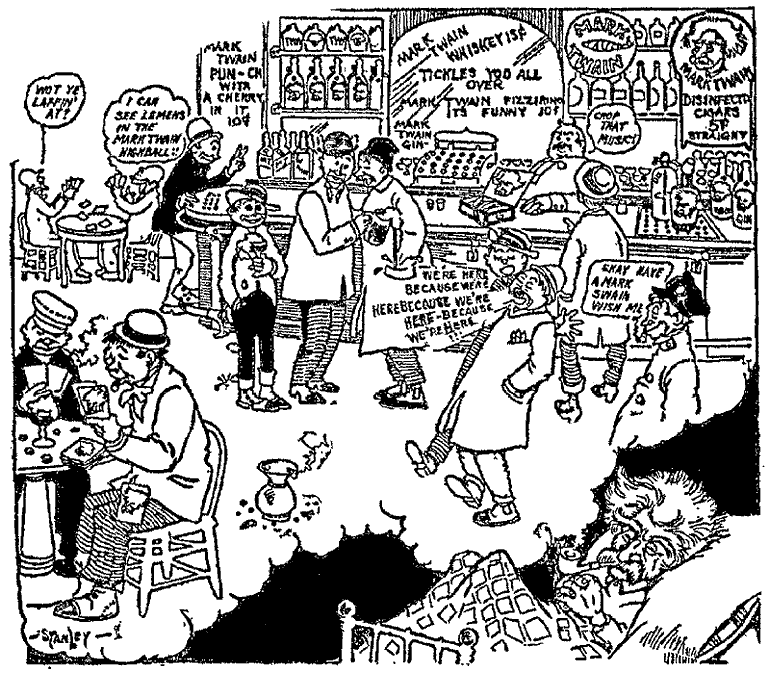

A country without a patent office and good patent laws was just a crab, and
couldn't travel any way but sideways or backwards.
- A Connecticut Yankee in King Arthur's Court
_____

|
Mark Twain has patented himself, also copyrighted himself, and is going into the cigar and whisky business under the pure food laws of the United States. All this on authority of the Bar and Buffet, a liquor trade paper. The paper says that the patent rights have been secured by Ralph W. Ashcroft, Mark Twain's business agent. So long as a man is alive he can protect his name, but once dead his heirs are powerless to to prevent the name and picture being exploited on bill board and garbage cans. So Mark has taken time by the forelock. He has headed off the possibility of electric signs exploiting "Mark Twain Rye," or "Mark Twain five-for-60-cent Cheroots." In order to make the trade mark patent stick, it is necessary to actually engage in business. The paper quotes Ashcroft as saying: "It is a sentimental and not a commercial venture. To protect Mr. Clemens' name and picture we must comply with the law and sell some goods, but the trade will probably be restricted and as private as possible. "We are going to put out a 'Mark Twain' whisky and a 'Mark Twain' cigar to protect the trade value of Mr. Clemens' name. In the past it has happened frequently that after the death of notable persons their names were seized upon by unwarranted persons and used to advertise some cigar, whisky, or other article. "Mr. Clemens did not want unauthorized persons to use his name as
a trademark. In having the name, photograph and autograph patented we
acted chiefly out of precaution. It was a protective measure to keep the
use and value of a noted name in the family of the man who made it famous. |
Quotations | Newspaper Articles | Special Features | Links | Search